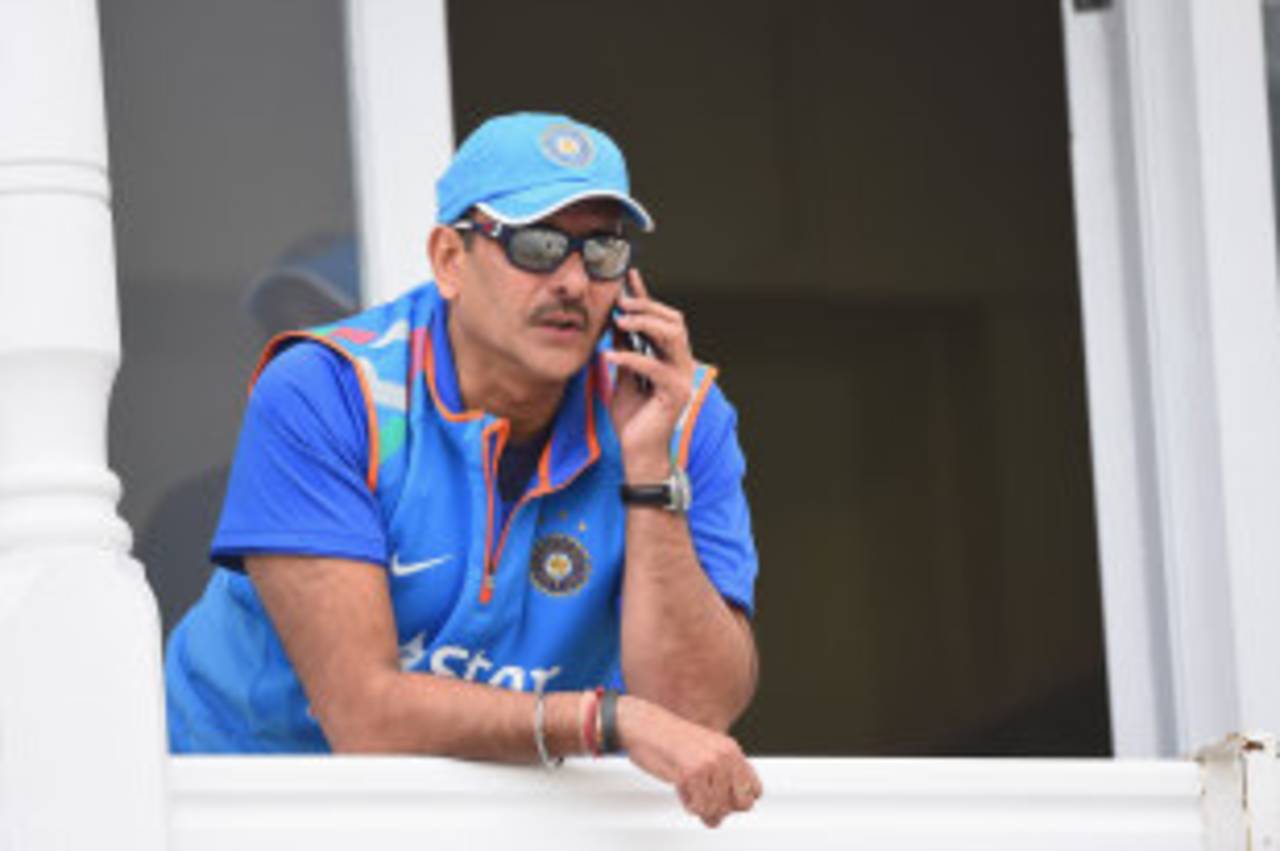Shastri backs suspect-action clampdown
Ravi Shastri has backed the strong stance taken by his colleagues on the ICC's cricket committee against bowlers with suspect actions, but admitted that the crackdown could have been done two-three years earlier
Amol Karhadkar
07-Oct-2014

Ravi Shastri: "Could have been done two-three years earlier but better late than never" • Getty Images
Ravi Shastri has backed the strong stance taken by his colleagues on the ICC's cricket committee against bowlers with suspect actions, but admitted that the crackdown could have been done two-three years earlier.
In its meeting in June, the cricket committee had suggested that it was important for match officials to get more help from bio-mechanists so that they could identify and report illegal actions "with more confidence". Since June, six players have been reported for suspect actions and Pakistan's Saeed Ajmal and Sri Lanka's Sachithra Senanayake were also banned after their actions were found illegal during testing.
"See, you had to take a strong stance. And I think in this meeting of the technical committee, that strong stance was taken that let's start nipping it in the bud," he said. "As it is, it should have been done early. Like you said, probably sleeping or probably being a little too relaxed. [It] could have been done two-three years earlier but better late than never, I would say. At least a strong message has gone now to one and all that if an umpire on the field feels there is a flex, if his naked eye can pick up a flex, [that] means in real testing it will be a lot. I think it's good for the game whether you like it or not."
Shastri also backed the recent financial reforms in the ICC, led by the BCCI, Cricket Australia and ECB, and said that the changes to the system of revenue distribution would benefit each Test-playing nation.
"I think for the good of the game because if you look at the economics, and you have to live in the world of economics whether you like it or not, if the revenue stream is such where you get 80% revenue that comes from one country and then you expect the booty to be shared by say a country that hardly even contributes, it's not fair," he said.
"You have to go with the flow. It means that you are not asking for the chunk in that ratio but you deserve more. And it was acknowledged by all the boards, so I think it's a very sensible decision which will benefit each and every cricketing nation who is part of the executive board of the ICC. It will benefit everybody and you will see two years down the line, when you ask me the same questions, I won't have to answer you. You will have the answer yourself."
Amol Karhadkar is a correspondent at ESPNcricinfo